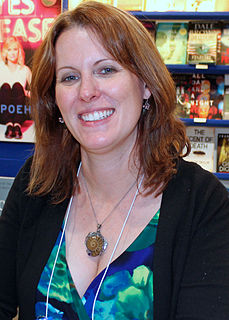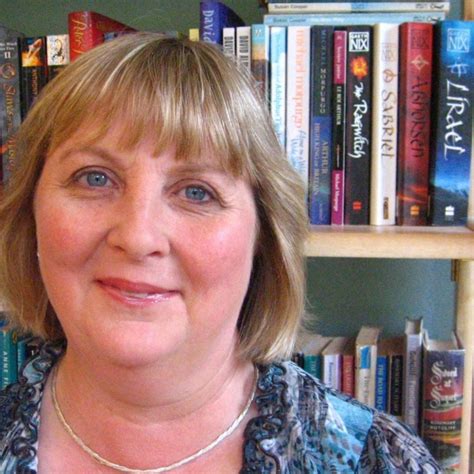A Quote by Michael Ondaatje
She had always wanted words, she loved them; grew up on them. Words gave her clarity, brought reason, shape.
Related Quotes
She'd always known he loved her, it had been the one certainty above all others that had never changed, but she had never said the words aloud and she had never meant them quite this way before. She had said it to him, and she hardly knew what she had meant. They were terrifying words, words to encompass a world.
Tessa had begun to tremble. This is what she had always wanted someone to say. What she had always, in the darkest corner of her heart, wanted Will to say. Will, the boy who loved the same books she did, the same poetry she did, who made her laugh even when she was furious. And here he was standing in front of her, telling her he loved the words of her heart, the shape of her soul. Telling her something she had never imagined anyone would ever tell her. Telling her something she would never be told again, not in this way. And not by him. And it did not matter. "It's too late", she said.
In her enthusiasms she had always looked for something tangible: she had always loved church for its flowers, music for its romantic words, literature for its power to stir the passions and she rebelled before the mysteries of faith just as she grew ever more restive under discipline, which was antipathetic to her nature.
The words burned on her tongue, but Minerva couldn’t give them voice. What a hopeless coward she was. She could pound on his door at midnight and demand to be respected as an individual. She could travel across the country in hopes of being appreciated for her scholarly achievements. But she still lacked the courage to ask for the one thing she wanted most. To be loved, just for herself.
In this moment she felt that she had been robbed of an enormous number of valuable things, whether material or intangible: things lost or broken by her own fault, things she had forgotten and left in houses when she moved: books borrowed from her and not returned, journeys she had planned and had not made, words she had waited to hear spoken to her and had not heard, and the words she meant to answer with. . . .
Before her marriage she had thought that she had love within her grasp; but since the happiness which she had expected this love to bring her hadn’t come, she supposed she must have been mistaken. And Emma tried to imagine just what was meant, in life, by the words “bliss,” “passion,” and “rapture” - words that had seemed so beautiful to her in books.
On the board was a list of words and phrases which her mother considered not suitable for use in college T-shirt design. She had been asked about them so often that in the end she had started a blacklist of banned words to which everyone could refer. Every time someone thought of a new one, she unflinchingly wrote it down... Rose read through the list, and turned back to her letter. These are the words I learned to spell in Mummy's art class today, she wrote, and sighed a little as she began the tedious job of copying from the board.
When American poet Alice Notley was very young, she used to sit in front of the radio and just listen. When she got older, she began to hear words and songs in her head everywhere she went - songs she loved, like 'Begin the Beguine' by Cole Porter, and her own words that sometimes tumbled out into poems.
Yet losing him seemed unbearable. He was the one she loved, the one she would always love, and as he leaned in to kiss her, she gave herself over to him. While he held her close, she ran her hands over his shoulders and back, feeling the strength in his arms. She knew he’d wanted more in their relationship than she’d been willing to offer, but here and now, she suddenly knew she had no other choice. There was only this moment, and it was theirs.
She sat leaning back in her chair, looking ahead, knowing that he was as aware of her as she was of him. She found pleasure in the special self-consciousness it gave her. When she crossed her legs, when she leaned on her arm against the window sill, when she brushed her hair off her forehead - every movement of her body was underscored by a feeling the unadmitted words for which were: Is he seeing it?
She was wearing a pair of my pajamas with the sleeves rolled up. When she laughed I wanted her again. A minute later she asked me if I loved her. I told her it didn't mean anything but that I didn't think so. She looked sad. But as we were fixing lunch, and for no apparent reason, she laughed in such a way that I kissed her.
She had, without realizing it at the time, learned to follow Nick's gaze, learned to learn his lust...his desires remained memorized within her. She looked at the attractive women he would look at...She had become him: she longed for these women. But she was also herself, and so she despised them. She lusted after them, but she also wanted to beat them up. A rapist. She had become a rapist, driving to work in a car.




































